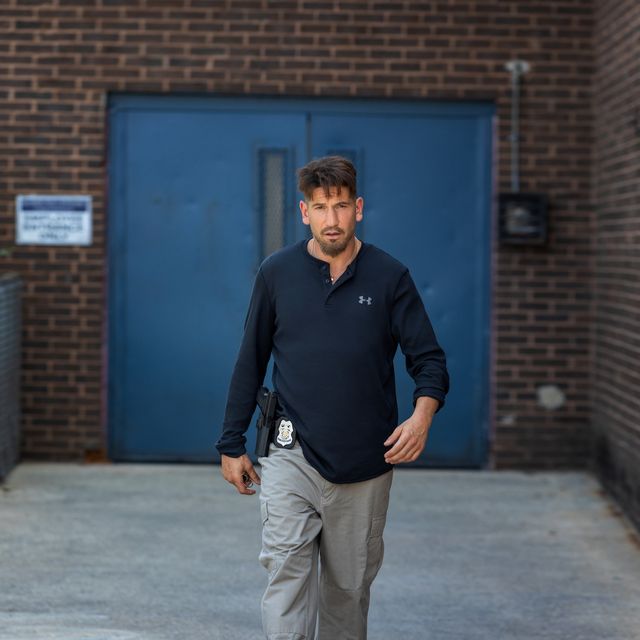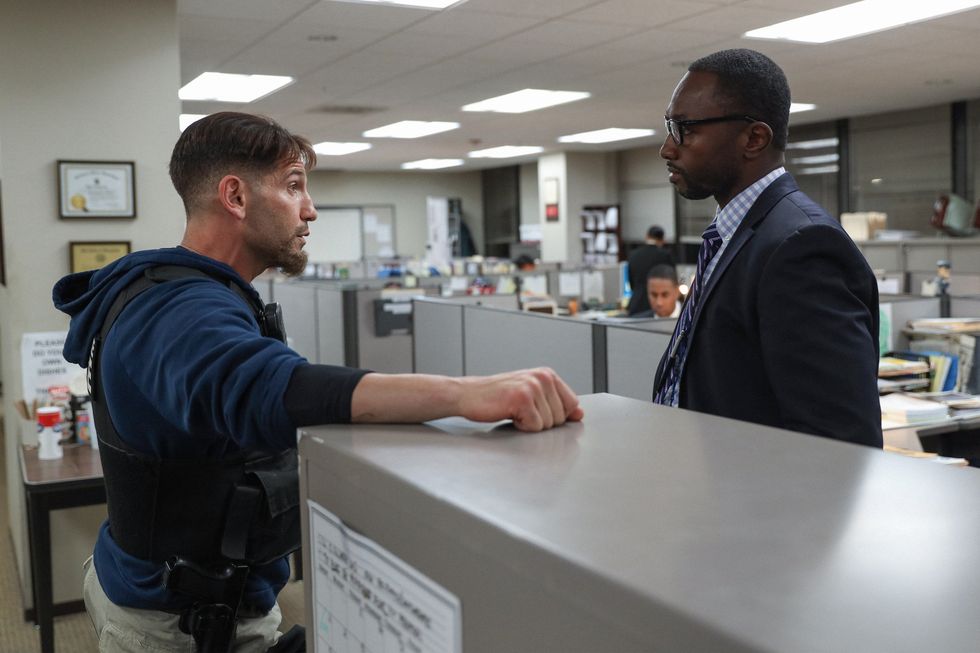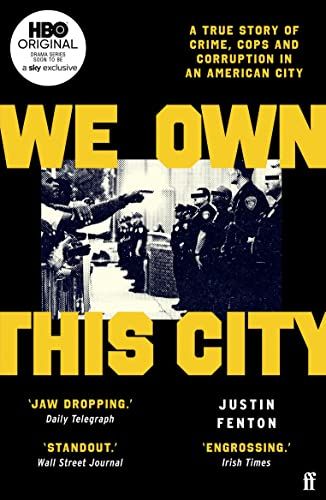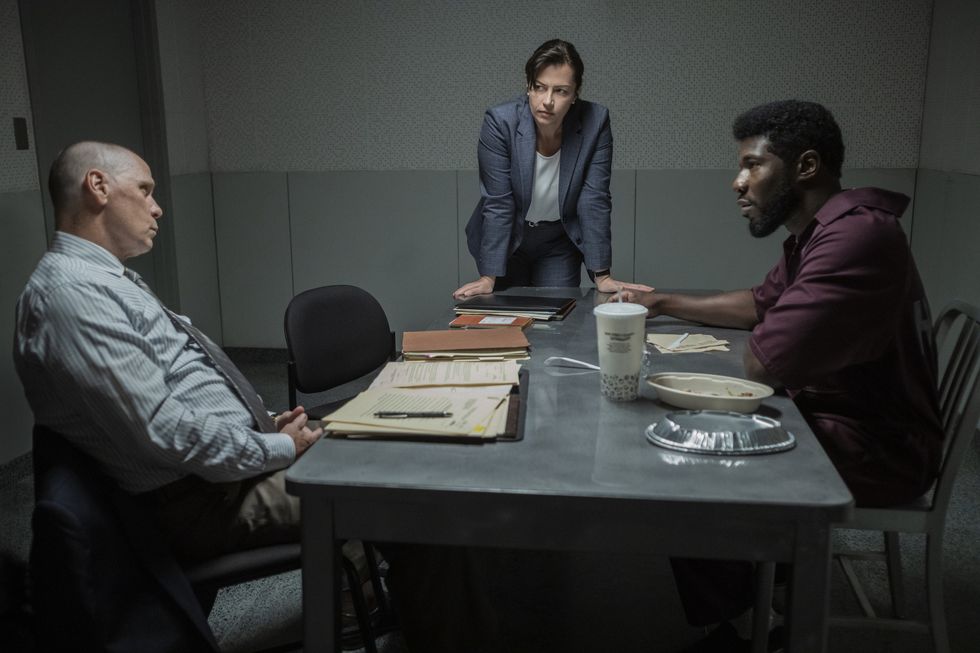David Simon created one of the most critically acclaimed TV series of all time with The Wire, and now, 20 years on, the writer returns to his beat of Baltimore once again for a new tale of crime and corruption in the city.
But while The Wire wove many different strands of society together - from the drug dealers in the projects to the politicians in the town hall - to expose their ills and highlight how they were all ultimately interconnected, We Own This City focuses purely on an “elite” police unit; and one that would put even Line Of Duty’s bent coppers to shame.
Depressingly, the hard-hitting plot isn’t all just the active imagination of Simon and his co-writer George Pelecanos. The story is actually adapted from a real-life expose about the shocking exploits of Baltimore Police Department's Gun Trace Task Force.
Is 'We Own This City' a true story?
The book that documented the entire scandal
The journalist Justin Fenton worked as a reporter at The Baltimore Sun newspaper - the same job that David Simon had at the beginning of his career - and in 2017 he worked to uncover the story that officers had essentially been running a racketeering ring from the department. The case made up the basis of Fenton’s 2021 book, We Own This City: A True Story of Crime, Cops, and Corruption, and this book is the basis for Simon’s adaptation for the series.
The Baltimore Police Department Gun Trace Task Force (GTTF) was initially set up in 2007 to tackle violent criminals in the city and to get guns off the street. But the GTTF ended up causing far more civic unrest and crimes than the people they had been targeting.
Of the specialist team, eight officers were said to be involved in a campaign of robbery and extortion for at least three years, focusing in on people they “suspected” of being drug dealers. But their criminal scam stretched even further, as they stole hundreds of thousands of dollars and jewellery while undertaking unlawful searches of the public’s cars and homes. According to the Associated Press, this included “a married couple who were handcuffed even though there was no evidence of a crime,” and while they were being held in the station, officers robbed $20,000 in cash from their home.
Officers talked about being on the lookout for “monsters” - people they believed to be drug dealers who carried a lot of cash - and one officer was said to have kept “two duffel bags at the ready with gear including black ski masks, a grappling hook, a sledgehammer, and a machete” to steal the money from their targets. They even planted toy guns on suspects as evidence, so they had a cover story if they shot an unarmed person.
The wider authorities didn’t realise what was happening until 2015, when the Drug Enforcement Agency (DEA) were tipped off that a crooked cop, Momodu Gondo, was not only helping drug dealers get off charges, but was caught on a wire tap admitting that he “sold drugs” too.
The criminal activity spread like a cancer throughout the rest of the GTTF and Black people found themselves largely the target of the department. In 2016, the 25-year-old African-American Freddie Gray died of a spinal cord injury when he was manhandled in police custody. Protestors took to the streets to object to what appeared to be a police cover up into Gray’s death and to demonstrate against racist and brutal police behaviour. While riots broke out, according to Vox, one GTTF officer turned up at a pharmacy looting and was found to: “take the stolen drugs himself, give them to a drug dealer, and split the proceeds.”
Who were the bent coppers and what happened to them?
Eight of nine ex-officers in the unit were charged. Six pleaded guilty: Thomas Allers, Momodu Gondo, Evodio Hendrix, Maurice Ward, Jemell Rayam and - said to be the leader - Wayne Jenkins. Two pleaded not guilty but were convicted by a federal jury: Daniel Hersl and Marcus Taylor. All men were sentenced to between seven and 25 years, with Jenkins receiving the highest sentence of 25 years in prison - he won’t be released until 2039. In a recent interview with the BBC, Jenkins (played by Jon Bernthal in the series), speaking from prison, was unapologetic and said he had been led astray by the systematic illegal activity of the department: “This is a saying we state: 'Don't let probable cause stand in the way of a good arrest. If you've got to lie about what you've seen or what you heard or what you witnessed, as long as he's dirty, he's got the drugs and he's got the guns and he did the crime - just get him.”
But, as Simon told The Hollywood Reporter: “I actually don’t think it’s about one guy. In fact, I think it would be an easier story to tell. The problem here is it’s not about the bad apples. It’s not even about a system; it’s about the mission. The entire mission of the drug war…lends itself to the worst kinds of police work and to a destruction of the kind of police work that’s supposed to happen.”
The GTTF was disbanded in 2017 after the crimes came to light, and the commissioner - Kevin Davis, who was later fired - described the indicted officers as “1930s-style gangsters.”
















